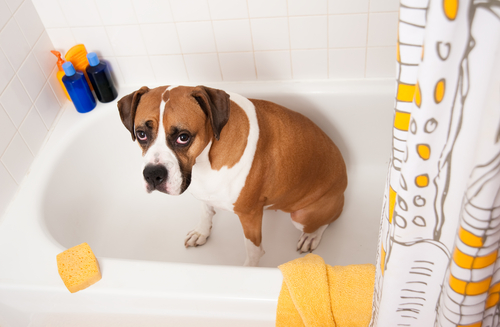Your Jewish/Catholic/Mormon/Lutheran/whatever mother was wrong.
Not only does no one religion or culture have a corner on guilt, guilt could even be good.
So said experts in a recent Wall Street Journal story looking into guilt and shame.
They said lying, cheating and stealing are what really hit the guilt buttons — not whether you fail to call your mother, or pig out on leftover Halloween candy, or fantasize about tripping your odious boss down an elevator shaft. (Relax, RNS editors. I love you.)
The story began with findings by June P. Tangney, a professor of psychology at George Mason University, in Fairfax, Va., who has spent 15 years studying all kinds of folks — criminals, parents and grandparents, and different religious groups.
Surprise! “Protestants, Muslims, atheists and everyone else feel, on average, just as guilty or shameful as Catholics and Jews,” she told the Journal. But women say they feel guilty more than men do.
(Not clear: Is it because they’re more comfortable admitting this on surveys? Excuse me, I have to call mom now.)
Tangney even called guilt “a useful emotion” that can prompt people to repair past harms while “feelings of shame about oneself seem to motivate people more to want to hide, escape, deny or a lot of times to blame other people.”
This is useful info now that we are heading into unofficial Guilt Season:
- Are we buying good enough gifts for the kiddos?
- Which parents will we visit for the holidays?
- Which charities will tug our conscience as the pre-Christmas/Hanukkah beg-a-thon commences?
- Which 2013 New Year’s resolution — lose weight, be kinder, quit smoking — will we repeat this year?
I once asked a range of clergy and believers about the good of guilt.
Rabbi David Wolpe of Sinai Temple in Los Angeles said, “For most of us, the default mode is to live our own life. If guilt drives us beyond our own concerns, it’s good. Would the world really be better if no one felt guilty? No.”
Evangelical writer Philip Yancey told me, “If you hurt someone, then the least you could do is feel bad. That’s what moral responsibility looks like… Guilt is like pain. It’s a message we get that says: ‘Pay attention.’ It’s for our benefit, telling us, through our conscience, that something is happening we should not ignore.”
 Religion News Service blogger Jana Riess, a Mormon, did a whole book, “Flunking Sainthood,” on her failed attempts to meet 12 high goals of service, charity and ideal behavior. She concluded that, while perfection was unattainable, there was deep worth in the living out the process and holding herself to spiritual accountability.
Religion News Service blogger Jana Riess, a Mormon, did a whole book, “Flunking Sainthood,” on her failed attempts to meet 12 high goals of service, charity and ideal behavior. She concluded that, while perfection was unattainable, there was deep worth in the living out the process and holding herself to spiritual accountability.
So she let go of guilt and reminded herself, “We believe in a God who is much nicer than we are and much more forgiving of our flaws and frailties than we are of ourselves.”
So here’s my take on guilt (Cue the earworm tune from Frozen). Face up, embrace it — then let it go.
And call mom.






